Landscape Gardening in Kingston
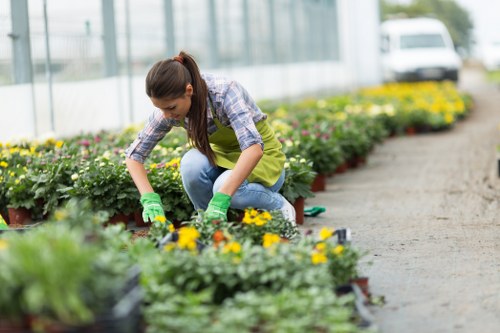
Landscape gardening in Kingston is a transformative approach to enhancing outdoor spaces. Whether you're aiming to create a serene garden retreat or a vibrant floral display, Kingston offers a unique climate and soil conditions that are ideal for a variety of plants.
One of the primary benefits of landscape gardening is the aesthetic appeal it brings to your property. A well-designed garden can significantly increase the curb appeal of your home, making it more attractive to visitors and potential buyers alike.
In addition to beauty, landscape gardening contributes to the environmental health of your area. Plants play a crucial role in improving air quality, providing shade, and supporting local wildlife.
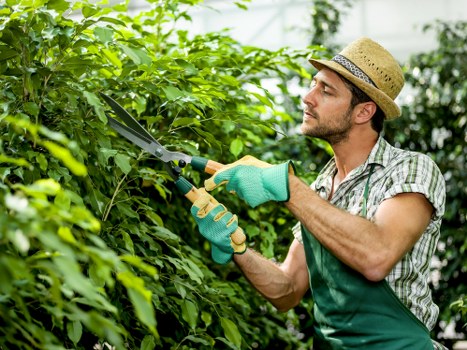
Choosing the Right Plants for Kingston's Climate
Kingston's climate is characterized by warm summers and mild winters, making it suitable for a wide range of plants. When selecting plants for your garden, it's essential to consider both their aesthetic appeal and their ability to thrive in local conditions.
Native plants are an excellent choice as they are well-adapted to the regional climate and soil, requiring less maintenance and water. Some popular native plants for Kingston gardens include lavender, coneflowers, and hostas.
Additionally, incorporating a mix of perennials and annuals can ensure that your garden remains vibrant throughout the year. Perennials provide long-lasting structure, while annuals offer seasonal color and variety.
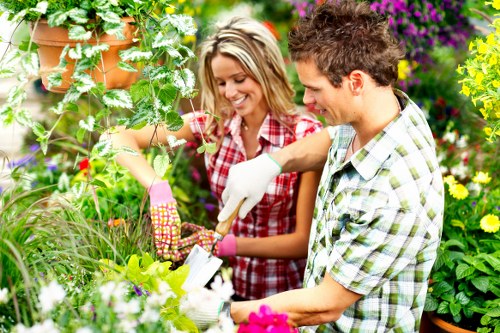
Designing Your Landscape Garden
Effective landscape gardening begins with a thoughtful design. Start by assessing the existing features of your outdoor space, including sunlight exposure, soil quality, and any existing structures.
Create a layout that balances open spaces with planted areas. Consider incorporating pathways, seating areas, and focal points such as water features or sculptures to add interest and functionality.
Using layers of plants, from ground covers to shrubs and trees, can create depth and texture in your garden design. This layering also supports biodiversity by providing habitats for various insects and birds.
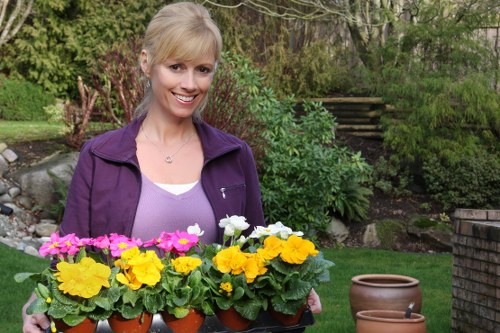
Maintenance Tips for a Thriving Garden
Maintaining a landscape garden requires regular care and attention. Proper watering is crucial, especially during the dry summer months. Implementing a drip irrigation system can ensure that your plants receive consistent moisture without wasting water.
Pruning and deadheading are essential practices to promote healthy growth and prevent the spread of diseases. Regularly removing spent flowers and trimming overgrown branches helps maintain the garden's appearance and encourages vigorous blooming.
Mulching is another important maintenance step. A layer of mulch helps retain soil moisture, suppress weeds, and regulate soil temperature, creating a more favorable environment for plant roots.
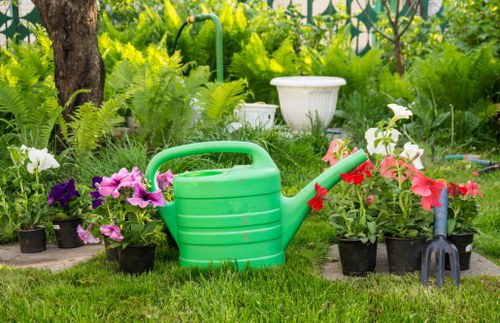
Incorporating Sustainable Practices
Sustainability is a key consideration in modern landscape gardening. By choosing eco-friendly materials and practices, you can create a garden that is both beautiful and environmentally responsible.
Consider using recycled materials for garden paths and edging to reduce waste. Additionally, selecting drought-tolerant plants can minimize water usage, making your garden more resilient to climate variations.
Composting garden waste not only reduces landfill contributions but also provides rich, organic matter to nourish your plants. This closed-loop system promotes a healthy garden ecosystem.
Enhancing Your Garden with Lighting
Outdoor lighting can dramatically enhance the beauty and functionality of your landscape garden. By strategically placing lights along pathways, around seating areas, and highlighting key plantings, you can create a magical atmosphere after dark.
Solar-powered lights are an excellent sustainable option, reducing energy consumption while providing ample illumination. Additionally, LED fixtures offer longevity and require minimal maintenance.
Integrating lighting into your garden design not only extends the usability of your outdoor space into the evening but also adds a layer of security by illuminating dark areas around your property.
Seasonal Garden Care
Different seasons bring unique challenges and opportunities for your landscape garden. In spring, focus on planting new blooms and preparing your soil for the growing season. Summer requires diligent watering and pest management to keep your plants healthy.
Autumn is the time to clean up fallen leaves and prepare perennials for the winter months. Protecting sensitive plants with mulch or coverings can ensure they survive the colder temperatures.
During winter, consider planning for the next year's garden. Reflect on what worked well and what could be improved, setting the stage for continued growth and beauty in your outdoor space.
Ready to transform your outdoor living space? Contact us today to start your landscape gardening journey in Kingston!